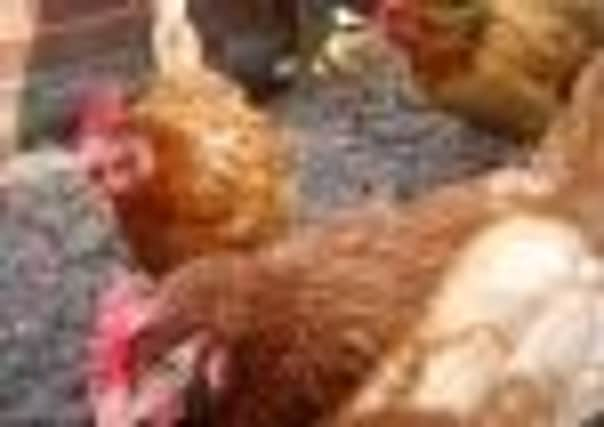Low down on keeping hens


As someone who grew up on a farm where we always had chickens, I thought I had a reasonable knowledge of what was involved before I set up my own little flock – a motley crew made up of rescued battery hens, a couple of young Rhode Island Reds and three Welsummers.
But what followed was huge learning curve. And one of the things that I’ve found most challenging is keeping our girls free of nasty but extremely common pests, such as mites.
Advertisement
Hide AdAdvertisement
Hide AdI’ve also heard one too many stories about people who get carried away with the romantic notion of collecting their own fresh eggs but are ill-prepared for the harsh realities of keeping hens. I know of at least two recent cases of people splashing out on all the kit they needed and sourcing hens, only to have a change of heart a few weeks later.
They were overwhelmed by the vast amounts of smelly manure that chickens produce and were upset by them wreaking havoc on their beloved gardens. The phrase all the gear, but no idea springs to mind. It suggests there’s a real need to educate people about what they can expect before they invest in chickens, accommodation, feed and the other equipment needed. It has prompted vet Heidi Svensgaard, whose has small flock of mainly Leghorns enjoying a free-range life in her orchard at home, to set up Howden Chicken Club. This offers a forum for people to share information about chicken health and welfare, and promote the safe use of their eggs and meat.
The club has its inaugural meeting next month and is open to everyone from large-scale chicken farmers to people with two or three hens in their back garden.
Heidi, founder and partner of the End Cottage Veterinary Practice at Howden, has lined up a series of guest speakers who, between them, will cover such topics as regulations and food safety, how to source your poultry and what to feed it. There will be a session on what sort of accommodation to provide for your chickens and a look at how to control pests and diseases.
Advertisement
Hide AdAdvertisement
Hide AdHeidi admits that there are a number of questions she wants answered. For example:
What does the law say about keeping chickens in your back garden?
Are roadside stalls selling eggs legal and should refrigeration be provided?
Are there places where people who only keep a few chickens for meat can take them to be slaughtered?
Advertisement
Hide AdAdvertisement
Hide AdHow do you get your flock tested for salmonella if you only keep a few hens?
“Howden Chicken Club will primarily be a health and husbandry group,” says Heidi. “We’ll have plenty of input from experienced local chicken keepers, commercial chicken keepers, feed experts and vets, as well as the council’s trading standards and animal health teams. Ultimately, we hope to be able to produce a chicken keeping manual or some sort of web-based forum, so that we have a lasting resource.
“I think that this surge of interest in chickens is an extension of the ‘grow your own’ movement. Eggs are a cheap source of protein, a major bonus in the current economic climate.
“People are also spending more time at home, so keeping chickens is a cheap and cheerful hobby that the whole family can get involved in. However, just because you want to do something, doesn’t mean you’re good at it and that’s the thinking behind Howden Chicken Club.”
Advertisement
Hide AdAdvertisement
Hide AdIt’s hoped that by arming would-be chicken keepers with knowledge, there should be fewer cases of people buying diseased birds and also underestimating the commitment required.
If you’d like to keep chickens, but don’t know where to start, here are a few useful resources to refer to:
www.nfumutual.co.uk/lifestyle/keeping-chickens.htm
www.bhwt.org.uk/cms/caring-for-hens/
www.henkeepers association.co.uk
Hens in the Garden, Eggs in the Kitchen by Charlotte Popescu.